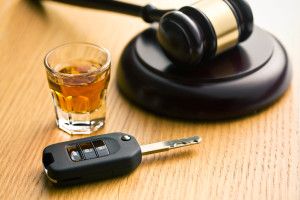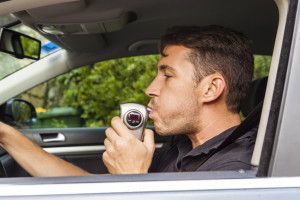
Earlier this month, Maryland lawmakers expanded the rules of ignition interlock devices, requiring even first-time offenders convicted of a DUI to have a car breathalyzer installed in their vehicles. If a driver’s blood alcohol concentration registers too high, the ignition interlock will prevent the car from turning on.
Interlock device laws such as these are common, though they vary from state to state. Some only require them after repeat offenses or after a particularly egregious offense, though some — like Maryland — now require them after even one DUI.
Maryland named the new bill “Noah’s Law,” after a Montgomery County police officer who was killed by a drunk driver while operating a routine DUI checkpoint in Rockville, Maryland. Some lawmakers, however, including the prosecutor who first championed Noah’s Law, are calling for even more drastic interlock device measures to prevent alcohol-related offenses.
John McCarthy, the Montgomery County state attorney in Maryland, is pushing for additional measures that would require ignition interlock devices to be installed in the cars of people who circumvent DUI conviction through “probation before judgment,” or PBJ, dispositions. In these cases, the accused pleads guilty and agrees to probation in order to avoid charges that could result in a final conviction.
“I will tell you, in my county — and a lot of others — first offenders pretty routinely get PBJs,” McCarthy said, but Noah’s Law does not require ignition interlocks for PBJs — yet. He firmly believes that more interlock devices in cars will reduce casualties on the road.
“This thing actually saves lives,” McCarthy said.
Furthermore, there’s scientific evidence to back up those claims. A previous study by the University of Michigan suggests that putting ignition interlocks into every vehicle in America — DUI or not — could reduce alcohol-related road fatalities by 85% over the next 15 years.
The study also suggests that the financial benefits of mandatory interlock devices would outweigh the initial installation costs in just three years. Should car breathalyzers ever become universal, they would likely be set at a BAC limit much lower than the legal 0.08, more likely around 0.03 or 0.04.
McCarthy also believes that widespread interlock use could cut down on other alcohol-related offenses, such as domestic abuse or violence. But for now, his agenda remains focused on how to make drunk driving a thing of the past.
 Help! I Failed My Car Breathalyzer, But I Haven’t Been Drinking
Help! I Failed My Car Breathalyzer, But I Haven’t Been Drinking